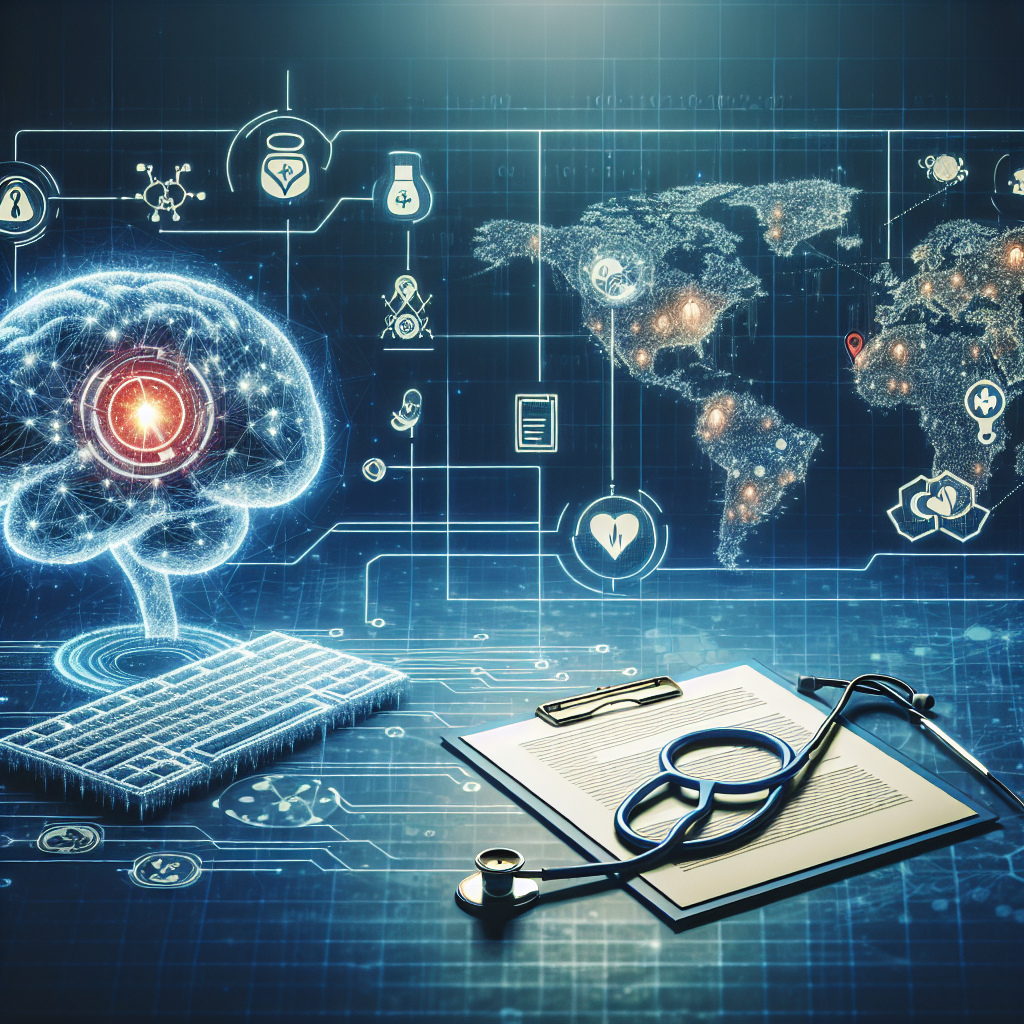In recent years, the healthcare industry has seen a significant increase in the use of artificial intelligence (AI) technology to predict and prevent disease outbreaks. AI has the potential to revolutionize healthcare by providing insights into patterns and trends that would be difficult for human analysts to detect. By analyzing vast amounts of data, AI algorithms can identify potential outbreaks before they occur, allowing healthcare providers to take proactive measures to prevent or mitigate the spread of disease.
One of the key benefits of using AI in disease prediction is the ability to analyze data from a wide range of sources, including electronic health records, social media, and environmental factors. By integrating these diverse datasets, AI algorithms can identify patterns and correlations that may not be immediately apparent to human analysts. This can provide valuable insights into the factors that contribute to the spread of disease, allowing healthcare providers to develop more effective prevention and intervention strategies.
For example, AI algorithms can analyze social media posts to identify clusters of symptoms that may indicate the presence of a disease outbreak. By monitoring these trends in real-time, healthcare providers can quickly respond to emerging threats and take proactive measures to contain the spread of the disease. Similarly, AI can analyze environmental data, such as air quality and temperature, to predict the likelihood of disease outbreaks based on environmental conditions.
AI can also be used to predict the spread of infectious diseases by modeling the movement of populations and the interactions between individuals. By simulating the spread of a disease in a virtual environment, AI algorithms can predict how quickly a disease is likely to spread and identify the most effective strategies for containing it. This can help healthcare providers allocate resources more efficiently and develop targeted intervention strategies to prevent the spread of disease.
In addition to predicting disease outbreaks, AI can also be used to monitor the effectiveness of interventions and treatments. By analyzing data on treatment outcomes and patient responses, AI algorithms can identify patterns that indicate which treatments are most effective for specific populations. This can help healthcare providers tailor their treatment plans to individual patients and improve overall outcomes.
Despite the potential benefits of using AI in healthcare, there are also challenges and limitations to consider. One of the key challenges is the need for high-quality data to train AI algorithms effectively. In order to make accurate predictions, AI algorithms require access to large, diverse datasets that are representative of the population being studied. This can be challenging in healthcare, where data may be fragmented and siloed across different systems.
Another challenge is the need for transparency and accountability in AI algorithms. Healthcare providers must be able to understand how AI algorithms make predictions and ensure that they are based on sound scientific principles. This requires ongoing validation and testing of AI algorithms to ensure their accuracy and reliability.
Despite these challenges, the potential benefits of using AI in healthcare are significant. By predicting disease outbreaks and monitoring treatment outcomes, AI has the potential to revolutionize healthcare and improve patient outcomes. As the technology continues to evolve, we can expect to see even more advanced applications of AI in healthcare, leading to more personalized and effective treatment options for patients.
FAQs:
Q: How accurate are AI algorithms in predicting disease outbreaks?
A: The accuracy of AI algorithms in predicting disease outbreaks depends on the quality of the data used to train the algorithms and the complexity of the disease being studied. In general, AI algorithms can provide valuable insights into patterns and trends that may not be immediately apparent to human analysts, but they are not infallible. Healthcare providers should use AI predictions as one tool in their arsenal and not rely solely on AI for making decisions.
Q: What are the ethical considerations of using AI in healthcare?
A: There are several ethical considerations to consider when using AI in healthcare, including privacy concerns, bias in algorithms, and the potential for misuse of data. Healthcare providers must ensure that patient data is protected and that AI algorithms are transparent and accountable. It is also important to consider the potential impact of AI on healthcare workers and ensure that they are properly trained to use AI technology effectively.
Q: How can healthcare providers ensure the accuracy of AI predictions?
A: Healthcare providers can ensure the accuracy of AI predictions by validating and testing AI algorithms on a regular basis. By comparing AI predictions with real-world outcomes, healthcare providers can identify any discrepancies and make adjustments to improve the accuracy of the algorithms. It is also important to ensure that AI algorithms are based on sound scientific principles and are transparent in their decision-making processes.

